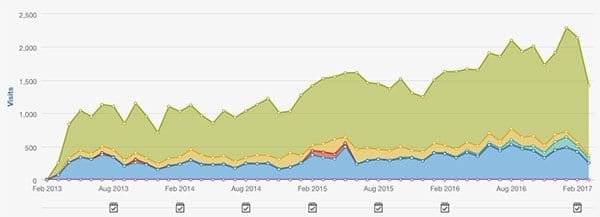Fall is a Good Time for 2026 Planning Is it time to build your next…

All Those Little Things You Do, (Metalworking Equipment Marketing Workflows)
(Thanks to Bob for another insightful post. Just last night I did a process equipment marketing review of Chemical Processing’s ads for Readex and reviewed the Emerson ad for “Project Certainty.” Eye catching ad but I can’t believe their claims. What could possibly “look differently” at my rock crushing plant project and replace the 1000 years of experience going into its design. Not to say modern analysis capabilities maybe could help but they are going to have to tell me a little bit more than, “innovate.” Plotting the human mind work flow was impossible just a few years ago. Mainly because what ever idea we came up with was proved wrong by science. Now the science is catching up. Look out, someone’s going to find out that we only work half the time!)
Jan 15, 2016 Robert Brooks | Foundry Management and Technology Editor’s Note.
-
Assigning value to individuals’ work is not really about rewarding individuals … it is seeking to optimize that value
The prospect of an economy driven by millions of free agents ‘working’ on an as-stipulated basis is fascinating, frightening, and slightly preposterous
Discussions about globalization and the effects of a unified industrial and consumer economy used to be a sure-fire topic for a white paper or a seminar, or a column. Whether you thought globalization would be a blessing (e.g., for investors, consumers) or a burden (i.e., for manufacturers), the topic remained evergreen because globalization always was treated as a proposition, some future state, an approaching reality.
But globalization is the reality now, and discussing it can be rather boring. Metalcasters and other manufacturers know well that some competitor 12 time zones away can cut into their customer base. They know too that keeping a work order or winning new business means their products must conform to the global standards for precision, consistency, and reliability. So, what else is new? Globalization is just not so fascinating as it once seemed.
RELATED
Raising Standards, Lowering Tolerance
Everyone who predicted globalization would be good or bad was generally correct, though there was a third outcome (unpredicted as nearly as I can recall) – and that is that globalization has magnified trivialities and highlighted what is unknown. Sorting and classifying information, determining what is important and the relative importance of different factors has become as critical to the success of an organization as design skill, production efficiency, or customer relationships.
So, the continuing legacy of globalization may be the parallel growth of data analysis – the eternal search for some new detail that can be exploited to improve results, avoid failure, or alter some situation in a way that can be exploited to make a business more competitive. This too is a part of how we approach our work. It’s the reason that FM&Tcan devote the first issue of each year to ideas and trends across the breadth of metalcasting operations, from design to finishing. There are established standards for carrying out all these processes, but the possibilities exist – in the minds of innovators, in the collaboration of designers and operators — that processes can be improved, and finished parts can be better.
Translating ideas into action is a seminar leader’s way of describing ‘work’, those things that individuals do to gain income, to solve problems, to fill their time, and frequently just to satisfy their own curiosity. Some work better than others, and that seemingly obvious fact has lately become a discussion topic, too. In the year-end rush of forecast topics sent for my evaluation were no less than four alerts about the role of the individual in the workplace. You and I may not realize it, but they’re watching what we do, and classifying it as data for evaluation.
Among the trends to watch in 2016, apparently, will be an emphasis on ‘remote’ business, a new reliance on independent consultants in place of managers and executives, more opportunities for temporary or free-lance workers to replace regular employees, and wider use of automation systems and devices to manage repetitive, complex, or risky tasks.
This list makes clear that assigning value to individuals’ work is not really intended to reward the individuals but to optimize the value.
Of course, in the same way that globalization once provided something for everyone to love or hate, the prospect of an economy driven by millions of free agents ‘working’ on an as-stipulated basis is fascinating, frightening, and slightly preposterous. That does not mean it will not influence how we approach the projects and prospects we face.
It may, however, force us to reckon with the reality that ideas, innovations, insights (call these data points whatever you wish … they are invaluable) are invariably connected to individuals. We cannot have the one without embracing the other. The work that you and I do each day is important, but not as important as the fact that we are the ones that do it.



